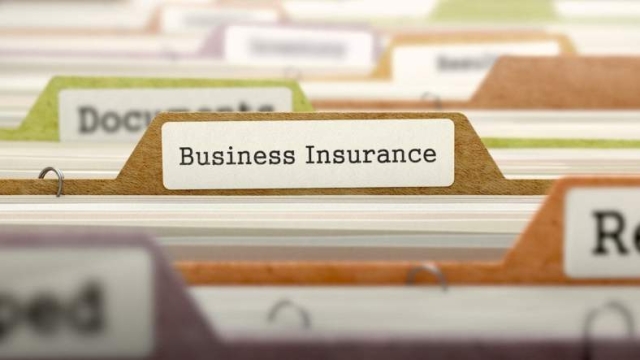
The Ultimate Guide to Navigating Car Insurance
Car insurance can often be a confusing and overwhelming topic to navigate, especially when you’re a small business owner trying to protect your valuable assets. It’s not just about having coverage in the event of an accident, but also understanding the intricacies of different insurance options, policy terms, and finding the right balance between cost and coverage. In this ultimate guide, we’ll walk you through everything you need to know about car insurance, with a particular focus on small business insurance. Whether you’re new to the world of insurance or looking to brush up on your knowledge, this article will provide you with the essential information to make informed decisions and ensure your business is adequately protected on the road. So, let’s dive in and unravel the complexities of car insurance together.
Understanding the Basics of Car Insurance
Car insurance is a crucial aspect of owning and operating a vehicle. It offers financial protection in case of accidents, theft, or damage to your vehicle. Having a good understanding of the basics of car insurance is essential for every driver.
One key factor to consider when looking for car insurance is the coverage options available. Different insurance policies offer various levels of protection, and it’s important to choose the ones that suit your needs. Some common types of coverage include liability, comprehensive, collision, and uninsured/underinsured motorist coverage.
Liability coverage is typically required by law and helps cover the cost of damages if you’re at fault in an accident. Comprehensive coverage protects your vehicle against damages not caused by collisions, such as theft, vandalism, or natural disasters. Collision coverage, on the other hand, provides financial assistance for repairs or replacement if your vehicle is damaged in a collision. Lastly, uninsured/underinsured motorist coverage helps protect you financially if you’re involved in an accident with a driver who doesn’t have insurance or doesn’t have enough coverage.
Another important aspect of car insurance is the premium, which is the amount you pay for coverage. Your premium can depend on various factors, including your age, driving history, the type of vehicle you’re insuring, and the coverage options you select. It’s crucial to compare quotes from different insurance providers to ensure you’re getting the best possible rate.
Car insurance is not only for individuals but also extends to small businesses that use vehicles for their operations. Small business insurance offers similar coverage options for vehicles used in business activities. It’s important for small business owners to understand their insurance needs and ensure their vehicles are adequately protected.
Understanding the basics of car insurance is the first step towards making informed decisions about your coverage. Whether you’re an individual or a small business owner, taking the time to research and understand different coverage options and premiums can help you find the right car insurance policy for your specific needs.

Choosing the Right Car Insurance Coverage
Restaurant Insurance Ohio
When it comes to car insurance, selecting the appropriate coverage is paramount. It ensures that you have the necessary protection in any unfortunate event. Here are some essential factors to consider when making this important decision:
Assess Your Needs: Begin by evaluating your specific requirements and circumstances. Consider factors such as your vehicle’s value, usage pattern, and level of risk. This evaluation will help determine the type and amount of coverage that suits you best.
Understanding Liability Coverage: Liability coverage is a foundational component of car insurance. It provides financial protection if you cause an accident or damage someone else’s property. Ensure that you have adequate liability coverage to meet the minimum legal requirements in your area.
Exploring Additional Coverage Options: While liability coverage is crucial, it’s often advisable to consider additional protection. Collision coverage can help repair or replace your vehicle in case of an accident, while comprehensive coverage provides coverage for non-accident-related incidents like theft, vandalism, or natural disasters. Assess your specific needs and budget to determine if these additional options are worthwhile for you.
Remember, small businesses also require car insurance. If you use your vehicle for business purposes, be sure to explore small business insurance options to ensure you have the right coverage for your needs.
Choosing the right car insurance coverage involves careful consideration of your unique circumstances and a thorough understanding of the available options. By evaluating your needs, understanding liability coverage, and exploring additional protection, you can make an informed decision to safeguard yourself, your vehicle, and your finances.
Navigating Car Insurance for Small Businesses
When it comes to car insurance for small businesses, there are a few key factors to consider. First and foremost, it’s vital to understand the specific insurance requirements for your business vehicles. Each state may have different regulations, so make sure you are familiar with the local laws.
Additionally, it’s essential to assess the potential risks associated with your business operations. Consider the type of vehicles you use, the number of employees driving those vehicles, and the purpose of their usage. Determine the level of coverage you need to adequately protect your business interests.
Furthermore, shopping around for the right car insurance policy is crucial. Different insurance providers offer varying coverage options and rates. Take the time to compare quotes from multiple companies, ensuring you find the best deal that meets your small business’s needs.
By navigating car insurance for small businesses carefully, you can ensure that you have the appropriate coverage to protect your assets and provide peace of mind for your business operations.



